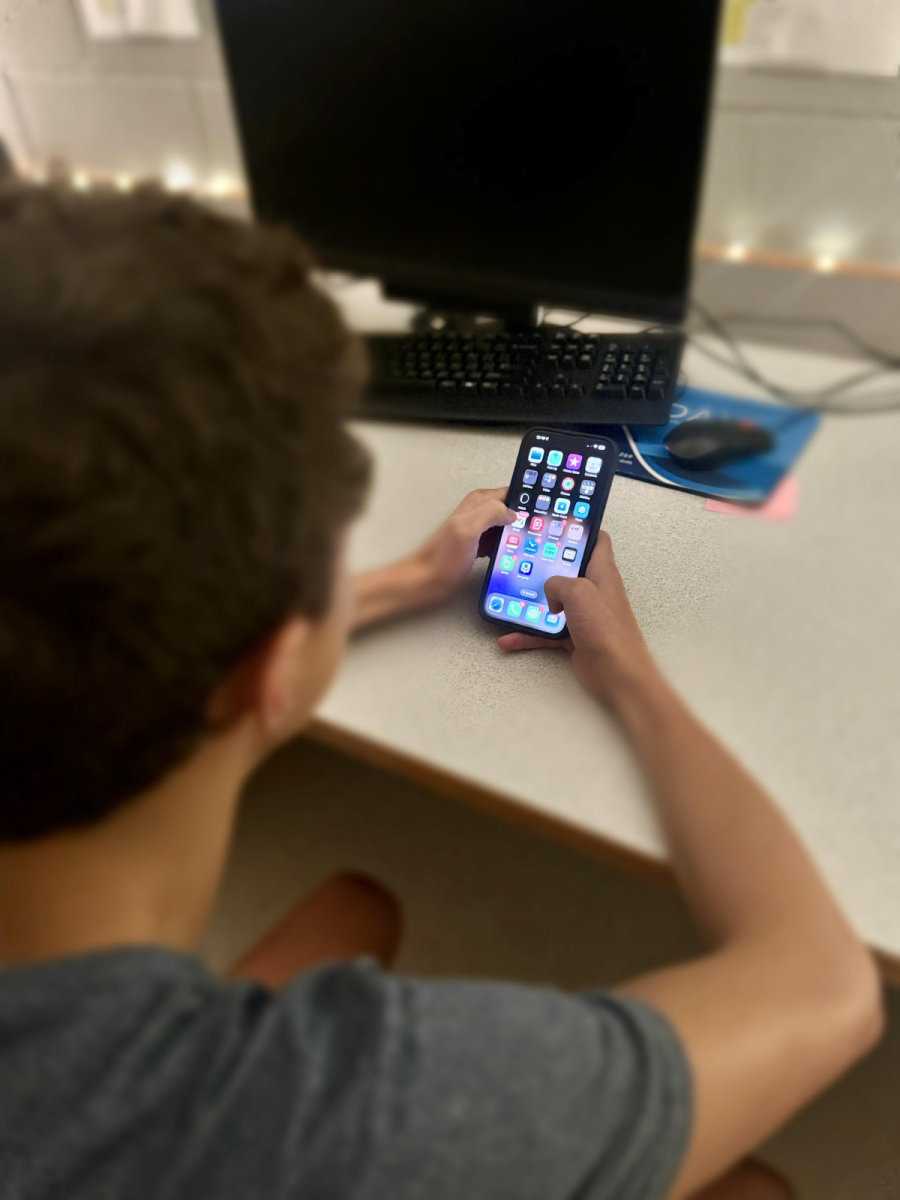Effective since August 15, 2024, Governor Youngkin’s Executive Order 33 has changed the dynamic of public education by issuing the first statewide limitations on personal electronic devices in Virginia. In a nationwide craze of similar policies combating cell phone usage, Youngkin’s new policy is aimed to reduce mental health challenges and significant classroom disruption by removing phones from the public education experience. The controversial ban has faced large amounts of both praise and criticism by the Woodgrove community.
For English and history teacher Derek Hughes, the phone ban has proved to be overwhelmingly positive, noting that both interactions with peers and productivity in the classroom have skyrocketed. He explained, “I’ve seen a ton of positive consequences. Kids are actively engaged in class, and they actually talk with each other. They’re getting so much better at building relationships with each other. I think they’re genuinely happier.” Though he says the newfound ban definitely caught him off-guard, he believes it has been in the makings for a while.
Prior to the ban, most rules concerning cell phones in the classroom were left up to the individual teacher, though Hughes has been known for enforcing similar limitations on phone use long before the state mandate. For him, the policy is more than just a ban on cellphones—it represents a necessary step for success. “I think if you truly care about kids and their education, and there is research stating how bad phones are for them, it shows we care and are investing in their success instead of letting them be distracted and inefficient.”
Like many teachers, math teacher Terry Staubs believes that the classroom phone ban is beneficial to students’ learning. Much like Hughes, Staubs had a similar policy regarding cell phones even before the statewide ban, which he believes is helpful in promoting a healthy classroom environment. “I used to let students keep them on their desk as long as they weren’t distracted, though they weren’t allowed to use it while I was teaching. Even before the ban, I noticed that my phone policy helped students be more attentive in class,” Staubs stated. He finds the cell phone policy helpful in a DenTime setting as well, explaining that, “I definitely notice kids going out of their way to interact with each other more. Others choose to catch up on schoolwork instead of being on their phone.”
Contrary to Hughes’ belief, many students do not feel that the phone ban is an improvement in their school lives. Sophomore Bryan Miller shares a challenge that the new policy brings to student athletes: “Coaches can’t contact us during the day, so it makes it difficult to stay in the loop about updates and schedules.” 10th grader Nolan Hamilton adds on, “If our parents text us something important or there is an emergency, there is no way for us to know right away.”
Whether in favor of this policy or not, a ban of the most used and relied-upon devices was bound to impact the lives of everyone involved. Certain people feel grateful for this policy’s effect, while others are not so thrilled. Regardless of these opinions, it appears that the cellphone ban will continue to be enforced for the foreseeable future, with even further restrictions to be established in January 2025.



